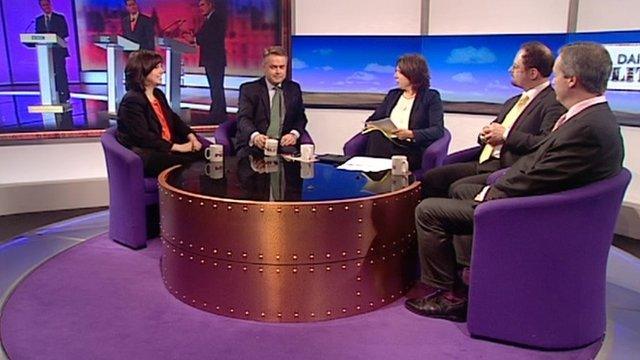Cameron moots 'all-party TV debates' at general election
- Published
David Cameron: "I'm keen to examine all the different formats we can have"
David Cameron has set out options for the format of any TV debates ahead of next year's general election.
He told BBC News one debate could include the leaders of "all the parties".
Another might comprise just himself and opposition leader Ed Miliband, he said.
The prime minister has been under pressure to say whether he would debate with UKIP leader Nigel Farage on TV, but he said if UKIP were included the Green Party should be represented too.
He also confirmed that formal talks on possible formats had not yet started.
Labour and the Lib Dems have accused the Conservatives of dragging their heels on the issue.
But Mr Cameron said he was confident that a deal would be reached.
Appearing on the BBC's Breakfast programme, Mr Cameron said: "I'm keen to have debates before the next election."
He raised concerns TV debates might take the life out of the rest of the general election campaign, which he argues happened in 2010, suggesting that the risk of this could be mitigated by holding the debates before the campaign begins.
'Formula'
Mr Cameron added: "I'm very keen to examine all the formats that we could have and I've suggested that perhaps we should have one debate with all the parties in, so that everyone can have their say, and perhaps we could have a debate where the two people who could actually be prime minister debate directly with each other.
"I don't think you could have a party like UKIP, without an MP, without the Greens, who have got an MP. So there are quite a lot of issues that have to be ironed out."
"We can let our teams negotiate in the Autumn for the start of the TV debates before the next election," he added.
Describing himself as "pro-TV debates", he concluded: "We've got to find the right formats, but I'm sure that if our teams sit down, they can come up with some sort of formula."
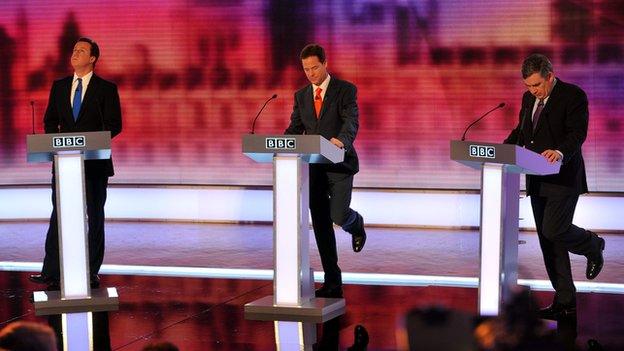
The UK's first general election TV debates took place in 2010
But Downing Street sources are stressing that they have not put any option "on the table" for discussion with the other parties or broadcasters.
Nothing has been ruled in or out and they are determined not to start negotiations until after the conference season in the autumn, with September's Scottish referendum remaining the focus after the European and local authority elections this month.
According to reports in The Sunday Times, Mr Cameron is open to the idea of a "2-3-5" format drawn up by his aides.
Under the plan, Mr Cameron would hold one head-to-head debate with Labour leader Mr Miliband, a second, which would also include Liberal Democrat leader Nick Clegg, and a third with Mr Farage and the Green party leader Natalie Bennett.
'Gender balance'
The newspaper suggested one of the debates would be held during the campaign, with the others beforehand.
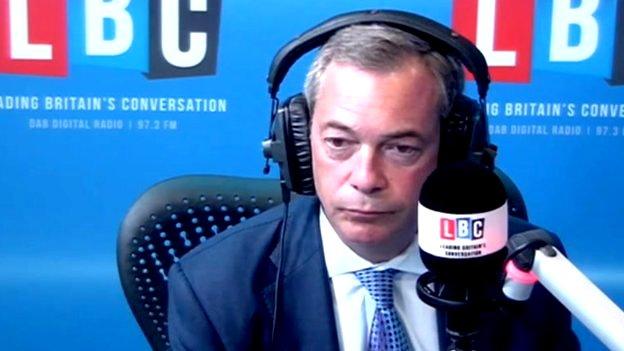
On his regular LBC radio phone-in programme, UKIP leader Mr Farage said: "They are thinking about, it and they won't say anything until after the party conference season in October - and then they will decide it's not a very good idea.
"He doesn't want to have a debate with me. Of course he doesn't, because he knows that there are two issues on which he can't win.
"One is the European question - the promise of a referendum. Five years ago, this bloke won the European elections giving us a cast-iron guarantee that if he ever became prime minister there would be a referendum on the Lisbon Treaty, and he let us down.
"But the big one and the one that no-one wants to debate, and the reason they are throwing all this abuse at us, is this - it is completely pointless to talk about immigration figures and targets while we are members of the EU and we have a total open door to nearly half a billion people and we cannot control the numbers that come."
'Gender balance'
Ms Bennett told the BBC she would be "delighted" to debate her party's "strong set of policies" with the other leaders "any time, anywhere, any place".
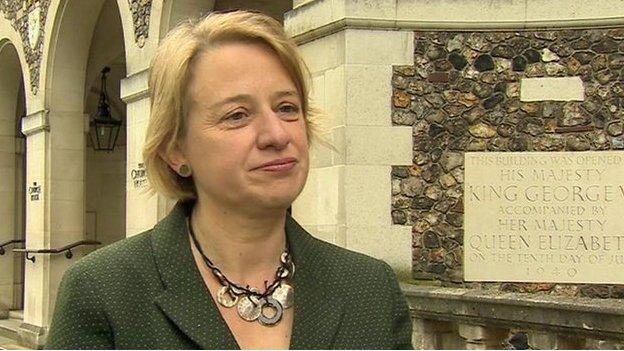
Ms Bennett said the Green Party was hoping to increase its tally of two MEPs at the European elections on 22 May
"We represent a large number of views that are not represented elsewhere in British politics, such as renationalisation of the railways, which is supported by 68% of the public," she said.
"Also, let's face it, this is the only way we're going to get any gender balance in the debates."
Labour's shadow Cabinet Office minister Michael Dugher said: "This is yet another desperate attempt to dodge talks about TV debates - David Cameron has stalled at every opportunity so far.
"If he is serious about this, he should stop dithering, appoint his negotiators and get on with it.
"It's nonsensical for Cameron to say he wants to start the debates early, but the negotiations late."
A senior Lib Dem source added: "Both the Liberal Democrats and Labour have repeatedly said that we are ready to sign up to TV debates on the same format as last time.
"It is David Cameron and the Conservative Party that have been ducking and weaving and looking for excuses not to do them.
"If the Tories are serious about TV debates, they should stop dragging their feet and get round the negotiating table."
Last month, Mr Miliband said the 2010 format of three debates between the three main party leaders over three weeks should be a "starting point" but that he was open to moves such as a less formal setting and greater voter participation.
- Published4 May 2014
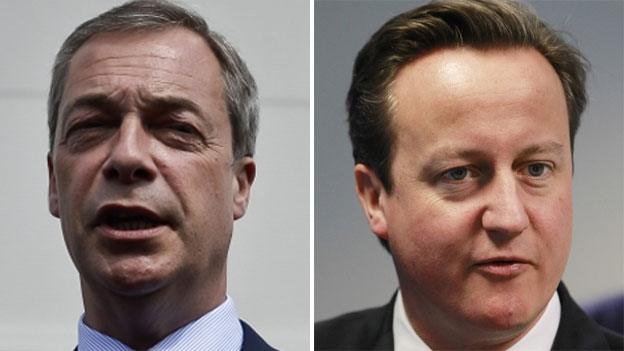
- Published2 April 2014
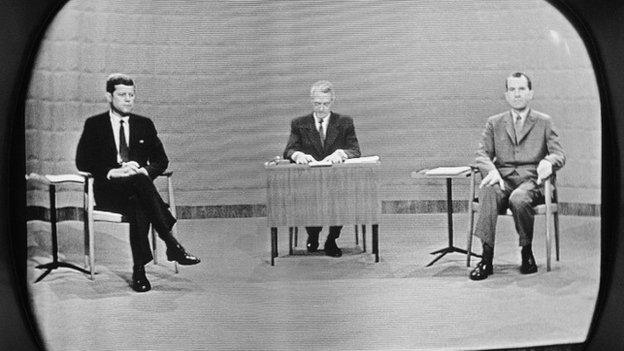
- Published6 January 2014
